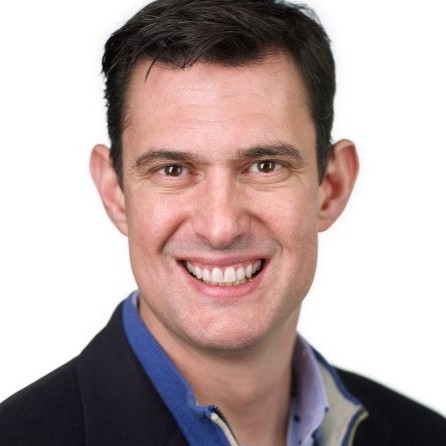Welcome to another episode of Three Minute Marketing, where we interview some of the world’s best and brightest growth marketers across different channels where revenue and growth is the true North.
Today, I’m excited to welcome Jaime Punishill, the CMO of Lionbridge, a leading translation and localization platform. I’d love to talk to him for a whole hour, but of course, we have just three minutes.
My question for Jaime is: “I know you work with many of the largest and most sophisticated brands in the world. Most companies are interested in growing globally faster, better, cheaper, and more effectively. So what advice would you give a brand that’s looking to go global or operate more effectively on a global scale?”
Show Notes:
- If you’re not thinking globally, you will be left behind.
- 90% of websites are written in English, yet 90%+ of countries don’t speak English. Every time you’re not looking at things at a global view and adjusting things for each locality, you’re leaving money on the table.
- You need to get prepared to support the entire world upon product releases. If not, you’re behind the leaders.
- The “market by market” or “locality by locality” mentality is outdated and from the Industrial era. Products no longer roll out city by city anymore. They announce, launch, and open across the world at the same time.
Bonus discussion after the recording:
- Last year, Lionbridge re-platformed onto Adobe and tried a new ABM platform. This year, it’s all about doubling down on what’s working.
- Lionbridge’s industry is typically a multi-vendor universe. They know there are dollars they’re spending elsewhere.
- Most B2B companies are more concerned with “net new leads.”
- A large part of the goal for Jaime is just letting people know that Lionbridge exists or reminding existing customers of their services. Some aren’t even aware that localization solutions exist. Part of the goal is “category establishment.” Their organization needs to convince CMOs to consider and understand localization.
- They’ve had to build a real map of the customer lifecycle and customer segments because they don’t think the industry really has a firm grasp of these concepts.
- Not every CMS is global, yet many don’t think about that when they choose a CMS. For example, Adobe doesn’t offer a multi-lingual data schema out of the box, so Lionbridge built the only one in the Adobe app store.
- In B2C, they offer incentivized sharing (e.g., free credit when you get someone else to signup) to get referral sales. B2B should learn from that and use that to get referrals.
Transcript:
– Hey everybody, welcome to another episode of 3 Minute Marketing. I’m your man, Chris Mechanic, 3 Minute Marketing is all about interviewing the world’s best growth marketers talking about cross-channel multi-functional Swiss army knife type marketers where revenue and growth is the true North. And today I’m super excited to have Jaime Punishill. Jaime Punishill is CMO of Lionbridge a massive translation and localization probably the largest in the world definitely the leader in translation and localization. His story is really interesting how they came to be. I would love to talk to him for a whole hour but of course, it’s three minutes. Jaime, welcome to the show. Thank you so much for coming.
– Thanks so much for having me. It’s great to be here.
– Yeah. So I do have a question for you, which I’ll pose and then I will start the three minute timer. So my question for you today, being an expert in localization and translation, I know you work with many of the largest and most sophisticated brands in the world the Microsofts, the Amazons of the world most of our larger clients are interested in growing globally faster, better, cheaper more effectively, et cetera. So what advice would you give a brand that’s looking to be that’s looking to go global or be more effective globally? Like what are the secrets of the best of the best brands that might be translated and used with you know, smaller, more up and coming companies?
– Yeah, no look, it’s it’s it’s obviously it’s a great question. And one we spend a lot of time thinking about and having, you know, think about it the company literally was founded to support the you know, the, our, our founder’s vision, you know in the early nineties of what would become the global economy that we see today. And, and what you see from the leaders right out the gate is, is, is a different world view. That’s that, that, that I think of is is it’s the digital worldview which is the planet as the customer-based. The experience is, is global by nature. And that the entire, in fact, the word globalization if you look at it is, you know setting a global strategy that presumes you’ve got this multiboard or multilingual, you know sort of multicurrency customer base and market base and your strategy is structured to drive that. And that sounds that, you know motherhood and Apple pie and obvious except what I would tell you is if you look at the way most companies are organized and the way most of us live is really an old industrial economy mentality. It is locality by locality, you know market by market, country by country. And, and the best way I like to think about this is if you think about, you know, Steve Jobs on stage and mid-2000s, announcing the iPhone He announces it. Three months later, maybe you see it in San Francisco in New York. Months later, maybe you get it in the UK or Germany. And it takes time to go through the globe. Contrast that with this past October that now it’s over the iPhone 12. It’s in 37 markets. Announced on one day, product materials available in one day stores ready on the same day and amazingly, a global supply chain that dropped a couple you know, a hundred million phones in 37 markets for consumption, right? And now the question you got to ask yourself as a company is are you prepared to support the entire globe on a single day for a product launch and if the answer’s no you’re already behind the, the, the, the leaders, you know. That really gets to sort of, you know the, the future of marketing is global. This is, I mean, you think about all the big trends. Customer experience, digital experience digital transformation, it’s a flat world. You’ve got 90% of the world’s content is in English yet 90 plus percent of the your potential viewers don’t speak English as their first language. And so every time you’re not taking that global view and then adjusting and adapting for each individual market you’re literally just foregoing revenue or making it a heck of a lot harder to achieve your revenue goals. And that’s why the globalization sort of theme is so important and where you see real differentiation.
– Yup. I have about a hundred questions, but we’ll continue but we’ll end the official episode. If you’re listening and you want to hear the rest of our conversation, there should be a link in the show notes, Jaime, in the meanwhile could you tell everybody if they want to learn more about your Lionbridge, how to do it?
– Yeah, sure. Best place to learn more about me is find me on LinkedIn just linkedin.com/in/jpunishill and certainly lionbridge.com. And I, online, I’d point people to a future of localization article that we just put out. There, really talks about future marketing future of globalization and how they’re coming together.
– Awesome. We’ll include a link to that in the show notes as well. So thank you very much for listening. Thank you, Jaime, for having me, stay on the line. I do have a couple of other questions for you.
Featuring:

Jaime PunishillCMO of Lionbridge

Chris MechanicCEO & Co-Founder
Podcasts Info:
Categories:
News + BusinessMost newsletters suck...
So while we technically have to call this a daily newsletter so people know what it is, it's anything but.
You won't find any 'industry standards' or 'guru best practices' here - only the real stuff that actually moves the needle.






